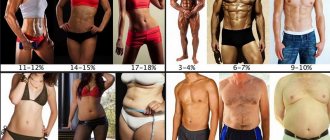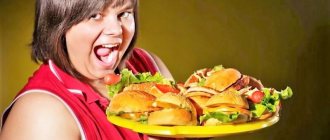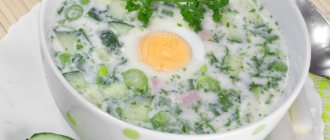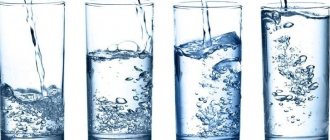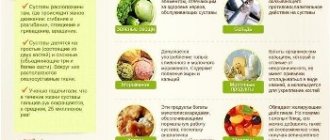A healthy body with developed muscles cannot be achieved by doing physical activity alone. Achieving bodybuilder forms is only possible by leading an appropriate lifestyle, which includes daily training, taking steroid medications and, of course, proper nutrition. A properly composed diet for a beginning athlete is a difficult task that requires financial investment, since high-quality products have never been cheap, and the help of a specialist in its preparation, at least at first.
- Read our article on how to eat after a workout as a bodybuilder.
Individual nutrition plan for a bodybuilder
As your weight changes, you must recalculate the amount of energy and nutrients you need. With the help of Body Expert, you will receive information on calorie needs, this is a necessary condition that allows you to create the correct nutrition for a bodybuilder for an individual, taking into account the individual parameters of the body.
Bodybuilder nutrition to maintain muscle mass.
Men who exercise five or more times per week need to consume 42 calories per kilogram of body weight per day (3,444 calories per day for an 82-kg man). Women who exercise five or more times per week will be able to increase muscle mass by consuming 44 to 50 calories per pound of body weight per day (2,950 calories per day for a 59-kg woman) and maintain muscle mass by consuming approximately 38 to 40 calories per day. kilogram of body weight per day (2360 calories). The larger and more muscular a woman is, the more calories she should consume to maintain her muscles.
Petite women may need less than 38 calories per kilogram of body weight per day to maintain muscle mass. For women, you learn a lot by trial and error, since all scientific experiments were done on men, and activity levels can vary greatly between individuals. For other parts of the nutrition plan, women should generally choose smaller portions. This diet is great for bodybuilders, weightlifters, powerlifters, and amateur strength athletes. Beginners must follow special instructions.
Nutrition for building muscles and gaining mass
. This plan requires consuming 44-52 calories or more per kilogram of body weight per day, depending on the intensity of the activity (4264 calories or more for a man weighing 82 kg); 2596-2950 calories for a 59 kg woman. Start with a minimal amount and add calories as needed. As noted earlier, for women looking to build muscle, 44 calories per kilogram of body weight per day will be enough. Petite women should consume slightly fewer calories at the beginning of a workout program and add more as their muscle size increases. This diet is suitable for all competitive strength athletes and amateurs. Beginners must follow specific beginner instructions.
Diet for terrain
(10-12 weeks of pre-competition diet). In order to reduce the fat component and start working on muscle definition, you should consume 35-38 calories per kilogram of body weight per day (3116 calories for a man weighing 82 kg; 2065 calories for a woman weighing 59 kg). Because it is more difficult for women to lose fat than men, they should consume a minimum amount of calories and increase aerobic activity to burn 300-400 calories per day. Again, petite women will require fewer calories. This recommendation applies mainly to female bodybuilders. Beginners follow the instructions for beginners.
Fat Burning
(maximum 7-14 days). This plan calls for consuming 29 calories per kilogram of body weight per day for women (1,711 calories for a 59-kg woman) and 32 calories per kilogram of body weight per day for men (2,624 calories for a 82-kg man). For smaller women following a reduced-calorie diet, this may also include reducing the number of recommended calories. Use this method only in extreme cases. This diet is only suitable for bodybuilders or competitive athletes gaining pounds for their weight class, but not for powerlifters (strength lifters) or Olympic weightlifters.
Powerlifters and weightlifters
gaining muscle mass for their weight category. Once you've followed a muscle-building diet, you'll need to go back to a maintenance diet for two weeks before you get into shape. This diet will allow you to get rid of subcutaneous fat without losing muscle mass, strength and endurance. This technique is also a good basic diet for high-impact strength athletes who are trying to lose subcutaneous fat.
Answers to basic questions
- How many meals should a bodybuilder's diet consist of?
The standard diet of the average person (breakfast, lunch, dinner) is not suitable for a bodybuilder. A fan of this sport should have a food intake system consisting of 5-7 meals a day. With this routine and diet, the athlete’s body does not experience hunger.
Hunger is the main enemy of a bodybuilder, since it begins the production of necessary substances from the body’s reserves and the muscular system. Muscle loss continues throughout the fasting period and only stops after eating. For healthy nutrition, you need to increase the number of meals, but make the portions more moderate. A bodybuilder's diet should be frequent, but not dense.
- What foods are needed for proper nutrition?
To answer this question, you need to understand the basic principle - that a bodybuilder’s food should consist only of natural foods! An athlete’s diet cannot contain doshirak, expired foods, or harmful food additives; it must consist of 80% meat, fish, vegetables and fruits.
Only on a natural basis can you build a proper muscular system. The bodybuilder’s body is subjected to constant stress; only products of natural origin, which must be included in the daily diet, can help to endure them painlessly.
“Proper” foods also include those that are grilled or steamed, without adding oil, or boiled. The correct method of cooking will provide an enriched diet of beneficial microelements and vitamins for a bodybuilder.
- What protein ratio does a bodybuilder need per day?
A bodybuilder's menu should consist of a huge amount of protein (natural protein found in pure meat and nuts); this element is the foundation for muscle building. To provide progressive sports nutrition, you must consume 2 grams of protein per 1 kg of live weight. Only this ratio will ensure a rapid gain of muscle mass and constant progress. To ensure your diet is rich in protein, you should include the following foods in your diet:
- Boiled or grilled chicken breast.
- Boiled eggs.
- Skim cow's milk.
Summing up
After reading the answers to the questions, we can conclude that an athlete’s diet should consist not only of natural products, but also contain a lot of protein. Only such nutrition will ensure a qualitative increase in muscle mass.
https://youtu.be/ml_5xqEvosY
Calculate your protein needs
Calculation of protein needs
Protein requirements vary depending on energy intake and exercise goals. Although menu plans presented in foreign articles give food volumes in grams per pound of body weight, you can easily convert kilograms to pounds by multiplying your weight by 2.2. Make sure your body is getting the amount of protein it needs by following all four bodybuilding nutrition strategies. If you're vegan, add an extra 10% protein to each plan.
- Maintenance of muscle mass: 1.4 g per kilogram of body weight per day.
- Muscle building: 3.5-4 g per kilogram of body weight per day.
- Nutrition for relief: 2.2 g per kilogram of body weight per day.
- Fat burning: 2.3 g per kilogram of body weight per day (2.2 for those who prefer mainly vegetarian dishes).
Take that, Atkins!
Clearly, carbohydrates are a big part of Jay Cutler's off-season diet. He eats about 200g at breakfast and at least 300g after training. If there are two workouts per day, then after the second one, 200-250 g of carbohydrates are also provided. Bodybuilders knew about the "secret" of weight control with carbohydrates long before the general public began buying low-carb foods. An ordinary person would have been treated for obesity long ago if he ate such a huge amount of carbohydrates. But don't forget: Jay trains hard - sometimes twice a day, not counting cardio training. In addition, one should take into account the huge amount of muscle already built, which turns his body into a perpetual fat-burning engine. Thanks to them, metabolism and fat burning continue even during rest. It seems that Jay, even just sitting on the couch, processes more calories than the average person does during a daily run.
Calculate your fat needs
The remaining calories will be 25-30% of the total. Fat sources should be primarily monounsaturated and polyunsaturated fats, including omega-3 fatty acids with much less saturated fat.
To determine the amount of fat you need in grams, first determine the number of calories contained in the doses of protein and carbohydrates that your body requires, which you should have already calculated earlier (1 g protein = 4 calories; 1 g carbohydrates = 4 calories). Now subtract these calories from the total calories needed for a particular bodybuilding phase of nutrition and exercise, and you will get the number of fat calories you require. Fat contains 9 calories per gram. So if you divide the calories of fat by 9, you get the grams of fat you need.
Take a break
Every bodybuilder has experienced this at one time or another: your schedule is so busy that you miss a couple of workouts in a row. To your great surprise, you are not losing weight, but seem to be growing. Why? Recovery!
Taking time off, along with adequate nutrition, allows the body to overcompensate and recover more fully from recent workouts. The same applies to nutrition.
It is recommended to have a cheat meal every 10-14 days and eat, in addition to what you usually eat, some foods that are not included in a typical bodybuilder's menu: ice cream, cakes, fatty cuts of steak, pizza, fried foods.
Should you overdo it? Absolutely not.
But taking one day and switching to fattier cut steak, eating a few muffins at dinner and ice cream for dessert won't hurt. Having a cheat day actually helps in terms of muscle growth. Of course, the next day you will need to return to a cleaner diet.
Example of a bodybuilder's diet
Here is an example of a maintenance diet for bodybuilders based on the needs of a man weighing 82 kg.
- Calories
: 33 calories per kilogram of body weight 33 x 82 kg = 2706 calories - Protein
: 1.4 grams per kilogram of body weight - 1.4 x 82 kg = 115 grams of protein
:
- 4.5 grams per kilogram of body weight
: Remaining calories or approximately 1 gram per kilogram
Calculate the calories in protein and carbohydrates in grams:
- 115 g protein x 4 calories/g = 460 calories protein.
- 369g carbs x 4 calories/g = 1476 carb calories.
- 460 + 1476 = 1936 calories of protein and carbohydrates.
Now calculate the calories of fat and its amount in grams.
- 2706 total calories - 1936 calories protein and carbohydrates = = 770 calories fat.
- 770 calories fat / 9 calories = 86g
So the diet consists of 2,706 calories, 115 grams of protein, 369 grams of carbohydrates and 86 grams of fat. Now, with the help of the food group nutritional chart, you can create your own bodybuilding diet.
Creating a Nutrition Plan for Competitive Bodybuilders
If you are preparing for a competition, start with a fat reduction phase 10-12 weeks before the start of the competition. Reduce calories and increase aerobic activity. The more aerobic exercise you do, the more fat you will burn. Aerobic exercise should be part of your regular strength program. But at this stage it is especially important. In the process of losing weight due to the fat component, you should reduce the number of calories mainly by reducing carbohydrates and fats. Try to consume carbohydrates at least 3-4 hours before the aerobic portion of the program to maximize fat burning.
If you are not completely satisfied with your muscle definition, follow a fat burning program for one to two weeks leading up to the competition. During this period, consume 29 to 32 calories per kilogram of body weight per day. This will allow you to lose the last 1-2 kg, while you do not have to reduce the intensity of your aerobic activity. Be sure to increase your protein intake to 2.3 grams per kilogram of body weight.
Lifestyle
Another irreplaceable part of a bodybuilder’s daily regimen is lifestyle. We will not talk about the dangers of alcohol, nicotine and other addictions. Let's pay attention to two periods of the daily regimen: training and recovery. Both are inseparable from each other. But it is important that the training regime can be compensated for if it is violated, but if you are deprived of regular recovery, then all your efforts will go down the drain.
Therefore, despite the modern rhythm of life, adhere to the regularity of not only your training regimen, but also your recovery. Recovery is ensured by the following components: nutrition, sleep on a schedule and rest during the day, a calm emotional state.
A bodybuilder needs to sleep at least 8-9 hours a day and spend as much time as possible active in the fresh air. After all, our body is created for movement!
Thus, learn to correctly select the load for training, control daily caloric intake and quality of nutrition, duration and timeliness of sleep, and you will progress like no one else!
Stick to your meal plan
For this entire system to work effectively, you must strictly follow your strength nutrition diet. Add your favorite foods to your diet. Use the sample menus presented in Chapters 12–15 to create your own personalized meal plan. If you don't like the foods suggested, you won't be able to follow this plan. If you take liquid supplements, try different brands and flavors to find the right products for you.
Listen to your body and adjust your diet to the time when you usually feel hungry. You may prefer to vary your meal times rather than sticking to a set schedule. But also remember your actual food and drink needs; Sometimes we confuse the feeling of thirst with the feeling of hunger. Wherever you go, try to always keep some kind of drink and something to eat on hand. Most successful strength athletes carry a backpack full of food and drinks with them everywhere they go. This way, they will always be able to stick to their eating schedule. And if they get hungry, they won't be dependent on vending machines or other quick food sources that are high in fat and sodium.
When you are trying to lose fat, you may have difficulty visiting restaurants and especially traveling. If you do find yourself in this situation, try to find a restaurant that specializes in healthy eating and can easily accommodate your custom order. But don’t forget to ask for the recipe for the dish. Menu descriptions of items may be incomplete or inaccurate. You can even order food not listed on the menu - restaurants like this should probably accommodate your requests.
Remember to always calculate the number of calories you need based on your current weight. If you gained weight during the muscle-building phase and now want to lose those extra pounds, start with your current weight.
No one will do this for you. You know that in order to become fit and strong, you have to work hard on your body. Your muscles also need nutrition to grow. Plan your diet and stick to it constantly. You will be shocked by your excellent health and appearance and also by your athletic results.
Products for muscle growth
When creating a menu for weight gain, it is important to take into account that for the complete absorption of proteins, they must be properly combined with amino acids. Carbohydrates play a leading role in nutrition aimed at weight gain, since if they are deficient, the body will “eat” muscle tissue during periods of increased physical activity
Products containing protein
Proper nutrition in bodybuilding is unthinkable without protein-rich foods. These include:
- Nuts;
- Beans, chickpeas, lentils and other legumes;
- Low-fat cheese, cottage cheese;
- Lean varieties of meat and poultry.
Soy is the record holder for protein content (about 36 grams per 100 grams of product), but it contains a high percentage of female hormones phytoestrogens, which slow down muscle growth.
High fat foods
To gain muscle mass, your weekly diet must include foods rich in unsaturated fats. Fats are considered the most readily available source of energy, but if saturated fats are overused, health problems appear such as: decline in immunity, wrinkled skin, increased wear and tear on joints and destruction of muscle tissue. Foods rich in unsaturated fats include:
- Hazelnuts, pistachios, almonds;
- Wheat sprouts;
- Sunflower seeds;
- Soya beans;
- Soy cheese (tofu);
- Seafood.
Fats, despite their high energy potential, are characterized by a long process of breakdown, therefore they make the body lethargic and reduce vitality. Proper nutrition consists of food that is prepared without frying in butter or vegetable oil. It is preferable to steam or bake products in the oven.
Carbohydrate-rich foods
The diet of a natural bodybuilder for mass should include predominantly complex carbohydrates
Therefore, you should pay attention to the following products:
- Oatmeal, buckwheat, corn and pearl barley;
- Rice (roughly processed);
- Asparagus, green beans;
- Raisins, dates and other dried fruits;
- Durum wheat pasta.
Fruits and vegetables are a source of carbohydrates, as well as useful fiber, necessary for the high-quality digestion of animal proteins. In addition, they contain a lot of vitamins, microelements and amino acids, without which one can only dream of gaining muscle mass.
Nutritional supplements
Most modern sports involve the use of special supplements that are useful for both girls and men.
- With the help of high-quality whey protein, you can increase your muscle mass gains.
- Gainer is a super-calorie mixture consisting of carbohydrates and easily digestible proteins. You can consume it either immediately after training or during your first meal.
- Creatine doesn't need much introduction as it is one of the most popular muscle building supplements. You can take a few grams of it both on training days and during rest.
- Vitamin-mineral complexes accelerate metabolic processes and have a positive effect on the process of weight stabilization.
An excellent student from Moscow has invented a fat burner! 12 cm in the waist goes away in a week if mixed with kefir... Read more
Revolutionary technology for losing weight at home. Lose excess weight without dieting or training! In just 23 minutes a day. Buy
Age-related fat does not come from food! You will lose 22 kg of fat in a week if you drink 150 ml of hot water on an empty stomach... Read more
